ChatGPT is credited for making generative AI popular, but in the two years that it’s been publicly available, it’s faced growing competition from all manner of AI tools.
It remains first and foremost a chatbot, with text and image generation capabilities, but new features have been added along the way such as support for internet searches, image generation and more.
A new era of AI is emerging, though. Personalized AI and AI assistants might seem like the ultimate goal when it comes to this time-saving tech, but can Martin’s AI keep up with OpenAI’s more established product?
The tests
ChatGPT is primarily a text and image generation tool, so it’s this part of Martin that we wanted to put to the test, even though it’s capable of integrating more deeply into everyday routines.
Still, because Martin is sold as an AI personal assistant, we wanted to check whether its integrated chatbot offered a more personalized experience.
The questions included a factual explanation, a mathematical equation, a broader request for advice, an open-ended request, an expression of creativity and freedom to express creativity.
“Explain the process of sunburn”
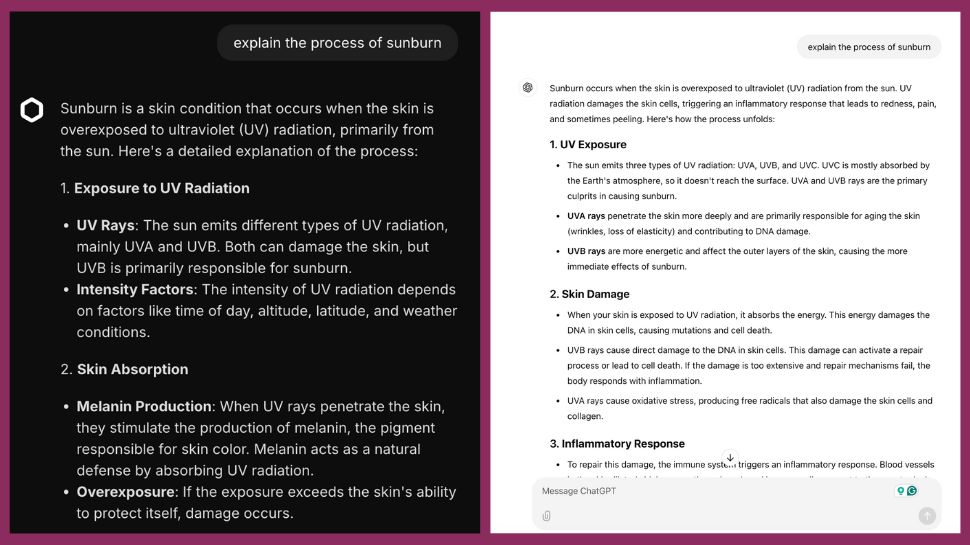
We wanted to understand the biological process and implications of sunburn, and both chatbots offered a full overview of how the damage occurs in a logical, step-by-step breakdown.
They also offered further context regarding long-term effects and advice to prevent sunburn in the first place.
On the whole, we were pleased with the well-rounded responses from both sources.
Martin 1 – ChatGPT 1
“What is (99/9)(5+5)”
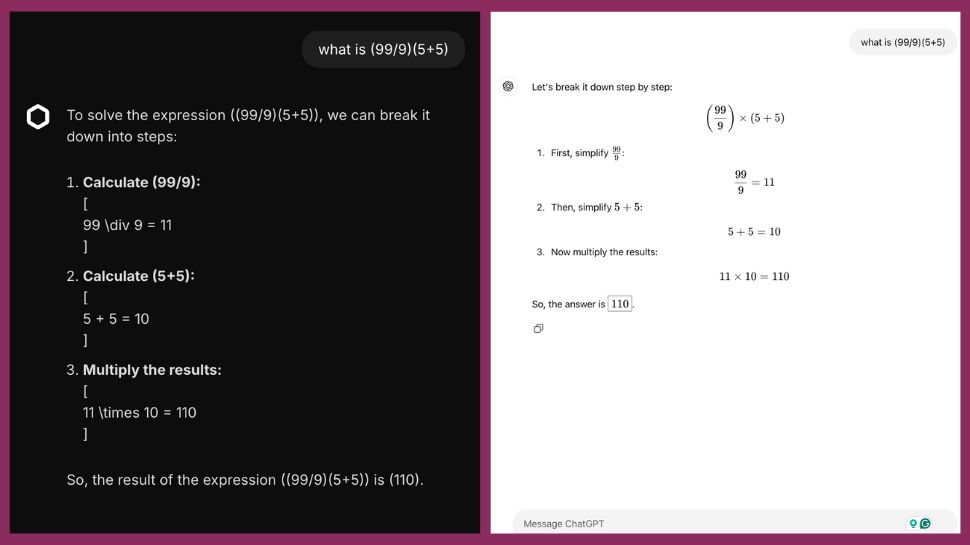
Two really simple equations bundled into a single, third equation should produce a really straightforward answer, but getting there can be a riddle for anybody who wasn’t paying attention in school.
The two systems broke down the steps involved to reach the correct answer – 110.
However, while ChatGPT was able to lay everything out clearly and in a range of formats, Martin struggled, making understanding how 110 was reached slightly less digestible.
Martin 0 – ChatGPT 1
“How many calories should an adult male eat?”
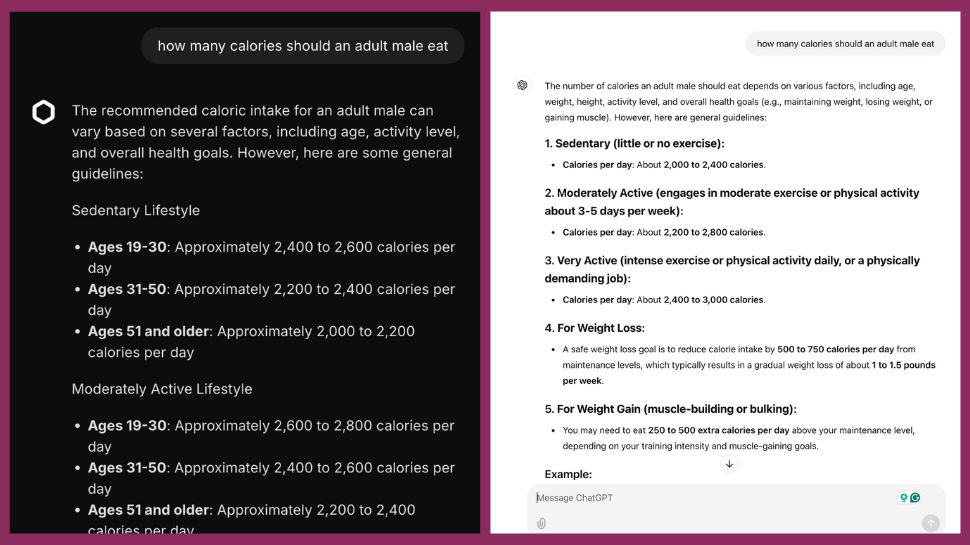
There’s no definite answer here, because everybody’s answer should be slightly different. Martin and ChatGPT both shared advice per lifestyle, for example sedentary and active days.
Martin also included advice for different age groups, which ChatGPT omitted, however there’s little evidence or data to suggest that these offer the correct advice.
The hope was that they would give us broad advice, which they did, and then go on to explain how to calculate the correct number of calories more accurately. Martin failed to do this, but ChatGPT cited the Mifflin-St Jeor Equation.
Martin 0 – ChatGPT 1
“Write an itinerary for a weekend in Reykjavik”
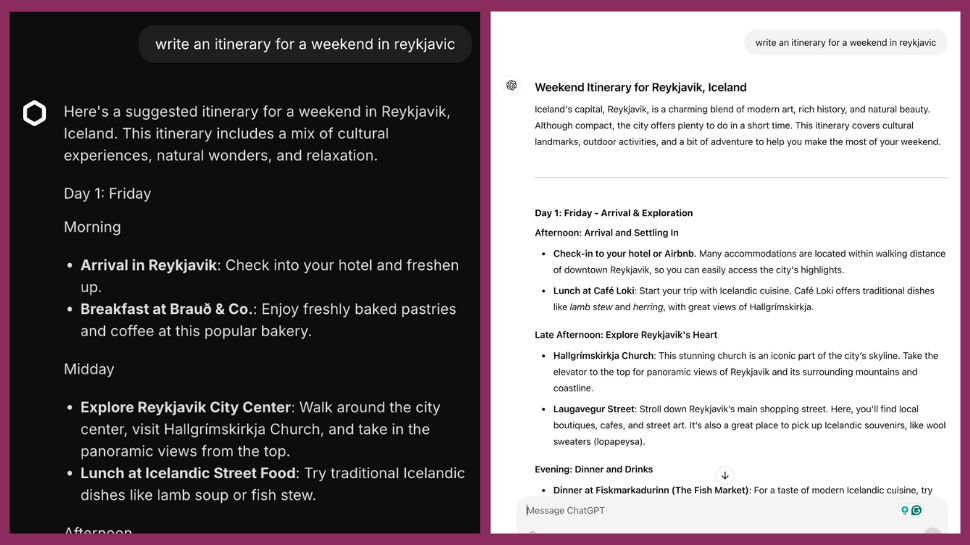
Two or three days should be enough to see everything Reykjavic has to offer for anybody who’s short on time, but can AI pinpoint what we should see and when to make the best use of our time?
Both systems counted Friday night as part of the weekend, but Martin assumed we had the whole day. They also highlighted some good places to eat, and more or less nailed the brief.
Martin and ChatGPT responded well to the prompt, but OpenAI’s chatbot went further and included advice on the weather, transportation and currency.
Martin 0 – ChatGPT 1
“Write a story suitable for a three-year-old”
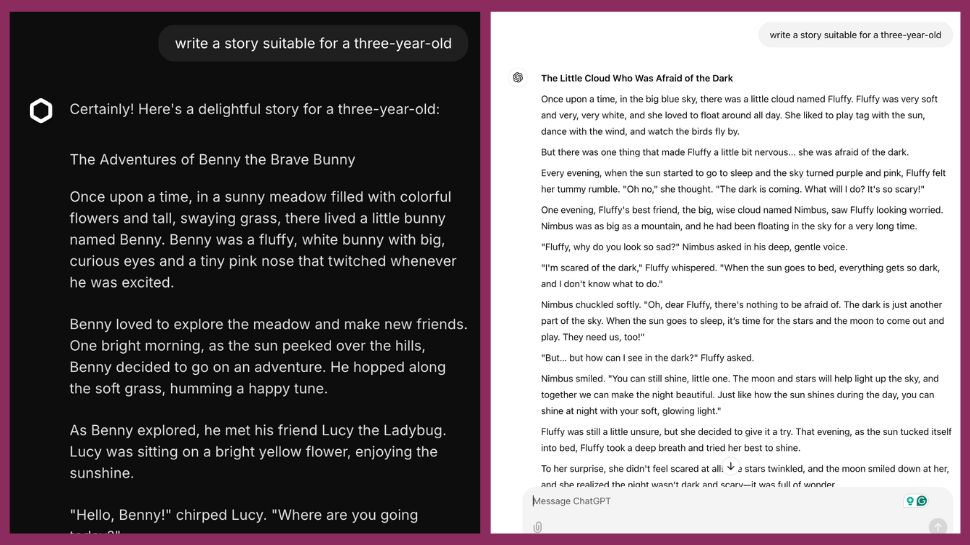
If your toddler is struggling to get to sleep and you’re out of books, you’ll need a story whipped up in seconds – Martin and ChatGPT delivered on this front.
They both generated an easily digestible and fairly captivating tale split into short paragraphs of no more than a sentence or two in length.
Both centered around some sort of a mission and a positive outcome, however we found the vocabulary used in Martin’s story to be marginally more challenging. This can either be a positive or a negative, depending on your parenting and educational preferences, but on the whole, ChatGPT’s story was easier to follow.
Realistically, you could imagine both being printed in a children’s book or being turned into a short animation.
Martin 1 – ChatGPT 1
ChatGPT vs. Martin: Which is best?
Martin 2 – ChatGPT 5
Putting Martin’s chatbot head-to-head against ChatGPT resulted in a clear verdict – ChatGPT performed well across all five tasks, while we felt Martin was lacking across three of them
However, that’s just the start of Martin’s abilities, and if you’re after a more contextual assistant then Martin can integrate with to-do lists, calendars, reminders and your email inbox to learn more about your preferences and habits.
Martin also integrates across messaging, calling and email platforms, including Slack, so it can be easy to share information with the AI assistant across more settings. OpenAI recently added voice calls for ChatGPT in the US and Canada, or VoIP calls via WhatsApp, but this is currently limited.

